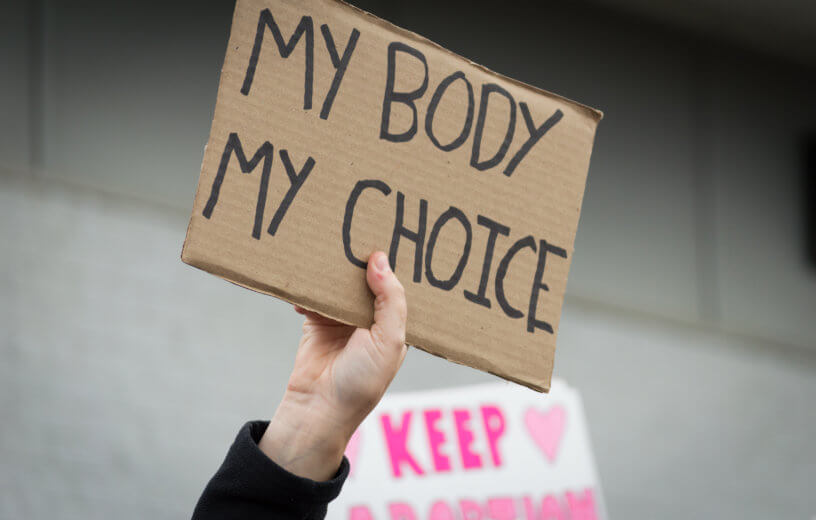SAN FRANCISCO — With the U.S. Supreme Court decision to overturn Roe v. Wade now official, a team from UC San Francisco and UCLA says that the nation’s doctors in abortion training will also feel the brunt of this shocking change.
Published in the journal Obstetrics & Gynecology on April 28 ahead of the decision, researchers report that undoing the nation’s standing abortion law will leave half of the country’s obstetrics and gynecology residency programs without proper abortion training for medical students.
While examining the theoretical possibility that Roe v. Wade could one day be overturned, study authors at the time mapped out the OB-GYN residency programs across the United States. Without Roe in effect, the decision would go back to each state, making the decision to keep abortion rights as they are now a choice which likely comes down to the political majority of that state.
They highlighted 26 states that will likely ban abortion with Roe v. Wade overturned. Of the 286 OB-GYN residency programs in the study, nearly 45 percent (128) are currently in states which would likely outlaw the procedure. Moreover, of the 6,007 medical residents in accredited OB-GYN programs in 2020, just under 44 percent did their training in a state that would likely ban abortion.
“In 2020, 92% of obstetrics and gynecology residents reported having access to some level of abortion training,” the study authors write in a university release. “We predict that, if Roe v. Wade is overturned, this would plummet to at most 56%.”
Roe v. Wade reversal fallout: ‘Far-reaching impacts’
Study authors add that their report likely underestimates the impact of overturning Roe v. Wade, since their review did not include family medicine and other specialties that also train new doctors in proper abortion procedures.
“Decimating abortion training in half the country will have far-reaching impacts,” says senior author Jody Steinauer, MD, PhD, who directs the Bixby Center for Global Reproductive Health at UCSF. “It could affect the care of future patients of clinicians who trained in these states wherever they go on to practice. We need to develop new and innovative ways to train OB-GYNs and other clinicians to provide this essential care.”
First author Kavita Vinekar, MD, an assistant clinical professor of obstetrics and gynecology in the UCLA School of Medicine, adds that abortion training also provides doctors in training with skills such as bedside manner, counseling, trauma-informed care, miscarriage management, and uterine evacuation.
“Those are the skills I got in my abortion training that I use every single day in all of the non-abortion care that I do,” she adds.
Now that Roe v. Wade is overturned, researchers say clinical educators should arrange for out-of-state travel rotations and other training programs to prepare for the significant drop-off in abortion training that would be available after the law changes.

Lea la versión en español en EstudioRevela.com: La decisión de la Corte Suprema en el caso Roe v. Wade probablemente «diezmará» la formación médica en el aborto.

Fascinating how the political Left are hysterically desperate to kill babies and deny it.
No end of excuses and false reasoning.
Hitler wasnt this sick. He picked on adults and children.
C’est la vie.
It is sickening the number of women who are now proudly boasting of having abortions. They obviously do not believe that God will seek vengeance for all un-confessed sin.
To decimate is to reduce by ten per cent. Please use correct English in your articles.
the pills do the work now…..waiting beyond that is sheer stupidity….but there will be the outliers….
Anyone can still get an abortion so not sure why people are freaking out. Go ahead. Abort your child it’s your choice. Nobody is standing in the way you can still get pills to get an abortion and nothing has changed so what is the problem here? Nobody is being denied access to getting an abortion. Please, if you want to abort your child by all means do so.